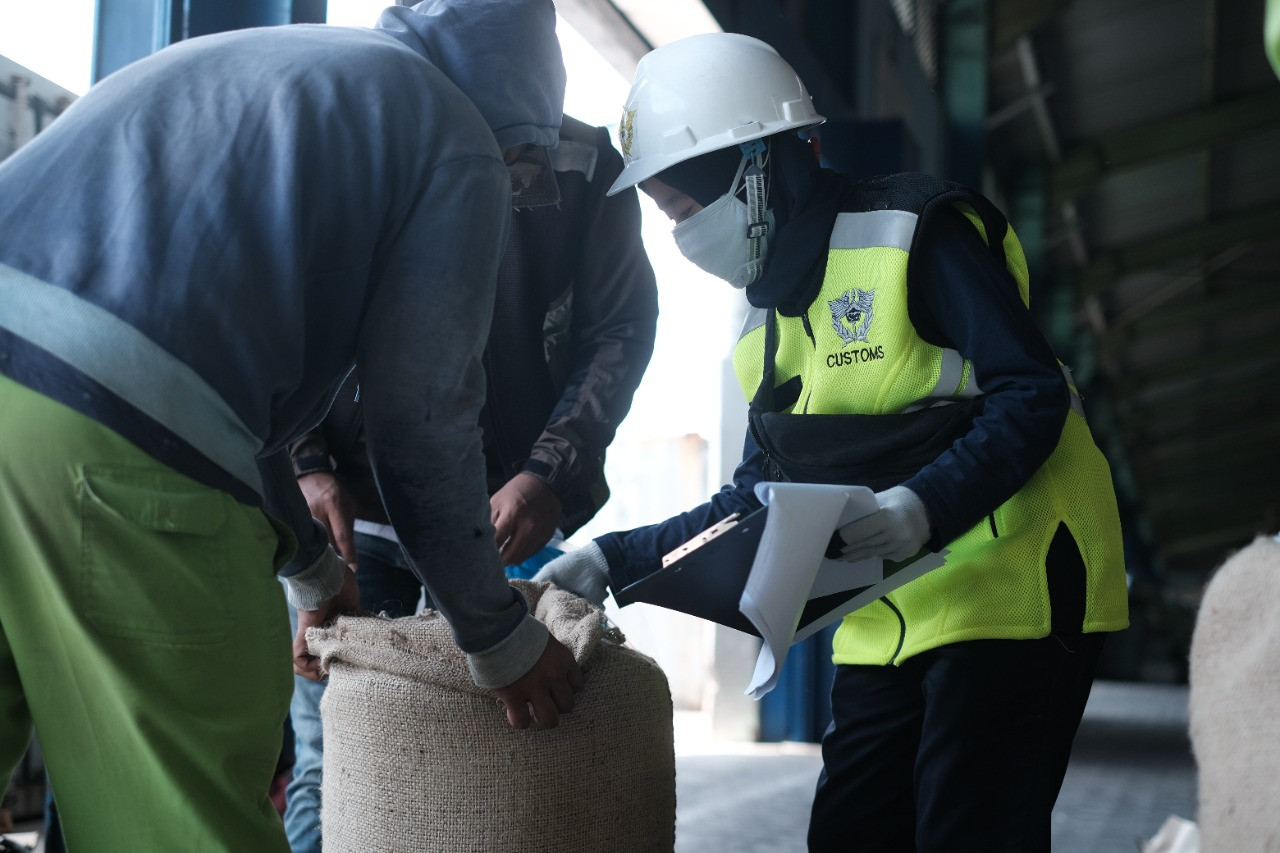Popular Reads
Top Results
Can't find what you're looking for?
View all search resultsPopular Reads
Top Results
Can't find what you're looking for?
View all search resultsCustoms and Excise supports domestic industry growth with fiscal incentives
Change text size
Gift Premium Articles
to Anyone
M
ostly known for its efforts in protecting Indonesian industries from the entry of illegal goods, Customs and Excise also plays an important role in helping increase the competitiveness of domestic industries and export products.
Customs and Excise Directorate General Askolani said that in facilitating domestic trade and industries, Customs and Excise has provided fiscal incentives via a range of customs facilities.
"In supporting the manufacturing industry, there are four customs facilities provided, namely KITE (Ease of Import for Export Destinations) IKM (Small and Medium Industries), KITE exemption, KITE reimbursement and bonded zones. Each provides a different fiscal incentive depending on its designation,” he said, adding that the provision of customs facilities aims to attract investment and increase exports, state revenues and efficiency in production and logistics costs.
KITE IKM is provided for the import of raw materials, auxiliary materials, packaging materials, sample goods and machinery with exemption from import duties, import value added tax (PPN) and luxury tax (PPnBM), with an investment value limit of up to Rp 15 billion (US$1.04 million) and sales of Rp 50 billion.
With the exception of machinery, imports of these goods may be granted a KITE exemption, while imported goods other than sample goods and machinery may receive a KITE reimbursement without any limitation on the investment value.
KITE exemption takes the form of exemption from import duties, PPN and import PPnBM; while KITE reimbursement provides fiscal facilities in the form of import duties that are paid in advance and then reimbursed (drawback).
Meanwhile, bonded zone facilities are provided for every import of goods into industrial estates with suspension of import duties and exemption from excise fees, income tax (PPh), import PPN and PPnBM, as well as PPN on goods from within the country.
Customs and Excise Director of Excise Untung Basuki noted that the provision of fiscal incentives through customs facilities was considered effective in growing the economy by increasing export performance.
In 2021, Indonesian exports were valued at US$88.29 billion, a growth of 43.56 percent year-on-year compared to 2020.
To maintain export performance, Customs and Excise continues to explore export potential, especially in MSMEs. One of the efforts made is through the export clinic program.
"The export clinic is a program that provides education, literacy and assistance to companies that have already exported or are about to start exporting. Customs and Excise is also coordinating with relevant ministries and regional agencies for the extraction and development of export potentials," Untung said.
Untung expressed his hope that the various customs facilities provided can increase the competitiveness of Indonesian industry and foreign exchange.
"The company is expected to be able to absorb domestic workers so that it can encourage economic growth and welfare," he concluded.










